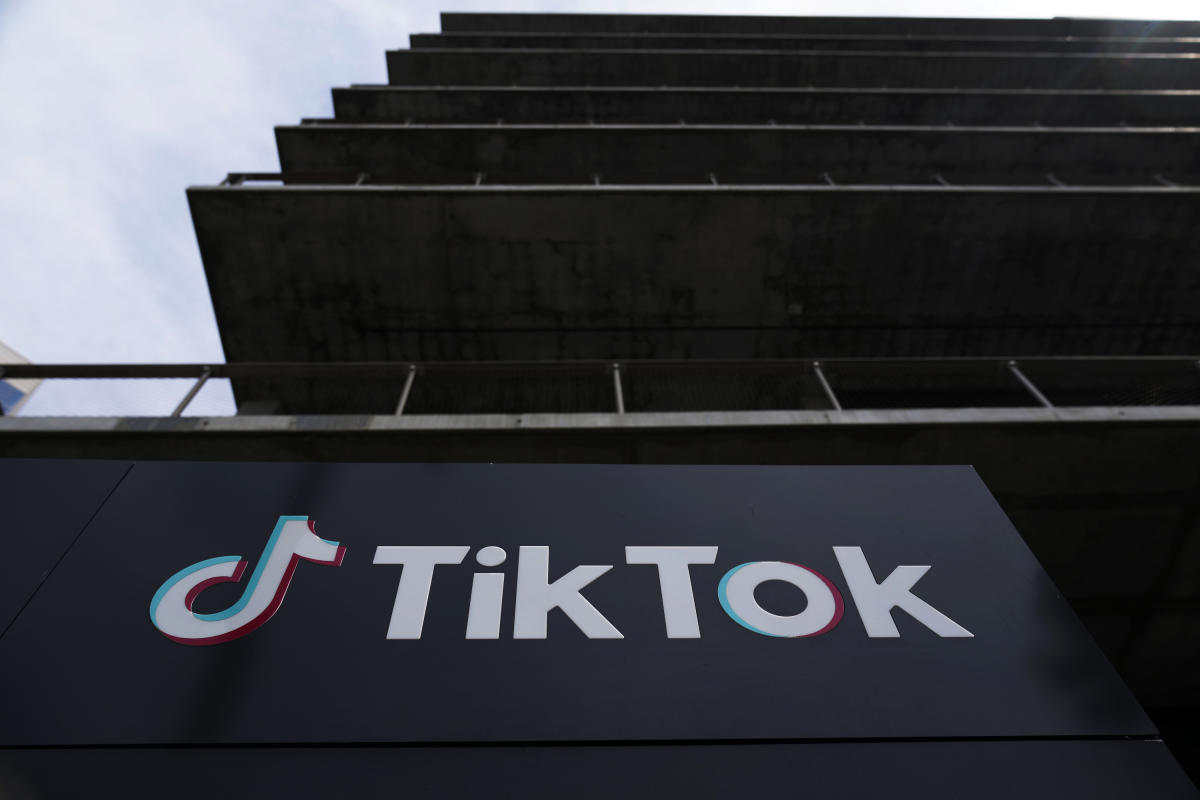WASHINGTON (AP) — The House passed legislation Saturday banning Tic Tac in the United States if the Chinese owner of the popular social media platform doesn’t sell its stake within a year, but don’t expect the app to disappear anytime soon.
The decision by House Republicans to include TikTok as part of a broader foreign aid package, a priority of President Joe Biden with broad congressional support for Ukraine and Israel, has accelerated the ban after an earlier version stalled in the Senate. A stand-alone invoice with a shorter six-month sales deadline, passed the House in March by an overwhelming bipartisan vote, as voiced by both Democrats and Republicans. national security concerns about the application owner, the Chinese technology company ByteDance Ltd.
The amended measure, passed by a vote of 360 to 58, now goes to the Senate after negotiations that extended the deadline for selling the company to nine months, with a possible additional three months if a sale is pending.
Legal challenges could extend that deadline even further. The company said it would likely go to court to try to block the law if it passes, arguing it would deprive the app’s millions of users of their First Amendment rights.
TikTok lobbied hard against the legislation, pushing the app’s 170 million U.S. users – many of whom are young – summon Congress and express opposition. But the ferocity of the response has angered lawmakers on Capitol Hill, where there are widespread concerns about Chinese threats against the United States and few members use the platform themselves.
“We will not stop fighting and defending your interests,” TikTok CEO Shou Zi Chew said in a video posted on the platform last month and aimed at users of the app. “We will continue to do everything we can, including exercising our legal rights, to protect this incredible platform we have built with you.”
The bill’s rapid journey through Congress is extraordinary because it targets one company and because Congress has taken a hands-off approach to technology regulation for decades. Lawmakers have failed to act despite efforts to protect children online, safeguard user privacy and make companies more accountable for content posted on their platforms, among other measures. But the TikTok ban reflects lawmakers’ widespread concerns about China.
Members of both parties, as well as intelligence officials, fear that Chinese authorities could force ByteDance to hand over U.S. user data or order the company to remove or boost TikTok content favorable to its interests. TikTok has denied claims that it could be used as a tool by the Chinese government and said it has not shared US user data with Chinese authorities.
The American government has not publicly provided evidence that shows TikTok has shared U.S. user data with the Chinese government or tinkered with the company’s popular algorithm, influencing what Americans see.
The company has good reason to believe legal action could be successful, having enjoyed some success in previous legal battles over its U.S. operations. In November, a federal judge blocked a Montana law It would ban the use of TikTok statewide after the company and five content creators who use the platform were sued.
In 2020, federal courts blocked an executive order issued by then-President Donald Trump to ban TikTok after the company filed a lawsuit claiming the executive order violated free speech and due process rights. His administration negotiated a deal that would have allowed U.S. companies Oracle and Walmart to take a significant stake in TikTok. The sale never happened for several reasons; one of them was China, which imposed stricter export controls on its technology suppliers.
Dozens of states and the federal government have implemented bans on TikTok on government devices. The Texas ban was challenged last year by Columbia University’s Knight First Amendment Institute, which argued in a lawsuit that the policy hindered academic freedom because it extended to public universities. In December, a federal judge ruled in favor of the state.
Organizations such as the American Civil Liberties Union have supported the app. “Congress cannot take away the rights of the more than 170 million Americans who use TikTok to express themselves, engage in political activity and access information from around the world,” said Jenna Leventoff, an attorney for the group .
Since mid-March, TikTok has spent $5 million on television ads opposing the legislation, according to AdImpact, an ad tracking company. The ads included a number of content creators, including a nun, touting the platform’s positive impacts on their lives and arguing that a ban would trample on the First Amendment. The company also encouraged its users to contact Congress, and some lawmakers received rude calls.
“It is regrettable that the House of Representatives is using the guise of significant foreign and humanitarian aid to once again block…



